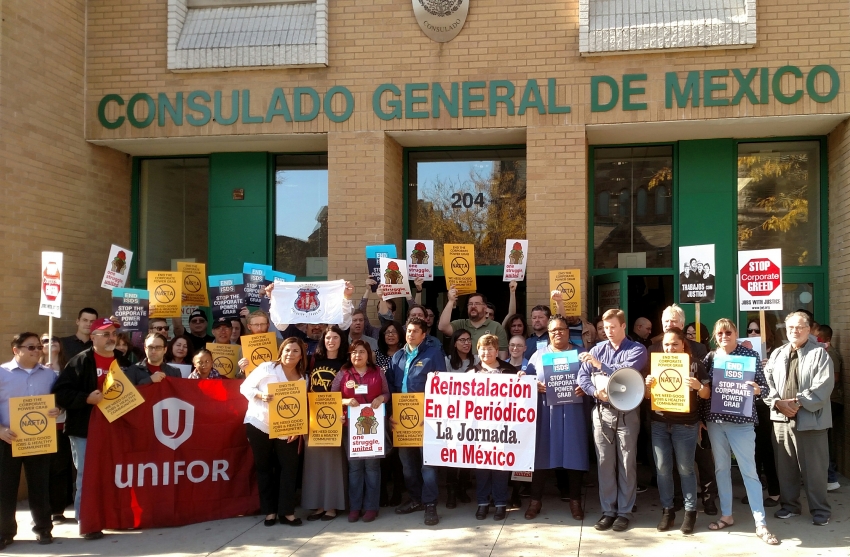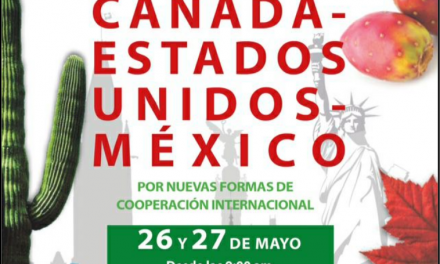Workers Say NAFTA’s Neoliberal Foundations Need to Be Dismantled from the Left—Not the Right
By Jeff Schuhrke
Rejecting both economic nationalism and free-market fundamentalism, workers across North America are building transnational solidarity and demanding labor rights for all.
Last week, nearly 60 representatives of unions and civil society organizations from Mexico, Canada and the United States gathered in Chicago for a two-day meeting to discuss strategies for collaboration as their governments renegotiate the 23-year-old North American Free Trade Agreement (NAFTA).
The meeting was coordinated by the United Electrical Workers (UE), UCLA Labor Center and Rosa Luxemburg Stiftung, an international civic education institution affiliated with Germany’s Left Party. While many Mexican unions are dominated by the government, only the country’s more independent and democratically run labor organizations attended.
“We’re discussing what kinds of relationships can be built, either bi-nationally or tri-nationally,” Benedicto Martínez, a national co-coordinator of Mexico’s Frente Auténtico del Trabajo, or Authentic Labor Front (FAT), told In These Times. “At the forefront of our vision would be the rights of people, including better wages, better education, better healthcare and immigration rights.”
Critics argue that NAFTA has accelerated the global “race to the bottom,” where governments dismantle workplace and environmental protections in order to attract capital investment.
“NAFTA has had many negative impacts. Big companies come to Mexico accommodated by the government as workers’ rights are constantly violated,” Julia Quiñones, coordinator of the Comité Fronterizo de Obrer@s, or Border Workers’ Committee (CFO), told In These Times.
CFO organizes maquiladora workers in the northern Mexican states of Tamaulipas, Coahuila and Chihuahua. The foreign-owned maquiladoras along the U.S.-Mexico border, which produce goods for export, embody the most pernicious aspects of “free trade”: exploiting low-paid, majority-women workers and polluting their surroundings.
Quiñones explained that maquila workers often face sexual violence from their managers, are exposed to dangerous chemicals, work 12- to 14-hour days and are frequently fired or blacklisted for trying to organize.
“Nobody benefits from these trade deals other than corporations,” said Kari Thompson, UE’s director of international strategies, in an interview with In These Times. “Not working people, not the environment, not women, not people of color, not farmers.”
The tri-national participants in last week’s Chicago gathering protested outside the Mexican Consulate Friday afternoon, calling on the government of President Enrique Peña Nieto to listen to the demands of Mexico’s workers in the NAFTA renegotiations. Adhering to neoliberal orthodoxy, Peña Nieto’s negotiators say that more trade, not more labor protections, will benefit workers.
“We’re denouncing the fact that independent, democratic unions like the ones we represent are not being heard,” Víctor Enrique Fabela Rocha of the Sindicato de Telefonistas (Telephone Operators Union) told In These Times. “We want a strong labor component in NAFTA. We want decent work as expressed by the International Labor Organization.”





